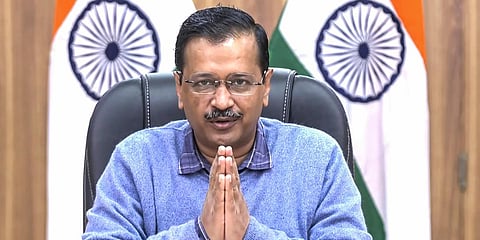Citizens send 5,500 suggestions to Delhi government for 2022-23 budget
NEW DELHI: From investor-entrepreneur programmes for small traders on the lines of 'business blasters' to the promotion of e-bikes, the national capital's residents have sent an array of suggestions for Delhi's budget for the 2022-23 fiscal year.
The Delhi government, which sought public responses for its Swaraj Budget, received 5,500 suggestions till Tuesday, which was the last day of submissions.
According to officials, a resident, impressed by the education system developed by the AAP government, called for a similar facility for adults too.
"They say that with the Delhi government having developed infrastructure and a variety of curriculums for schools, adults could benefit from the same as well. They have pitched for life-long learning as a fabric for development and progress, and asked for evening classes for adults in these schools," said an official.
A city-based journalist sought the development of 'mohalla libraries' on the lines of 'mohalla clinics' and said such a system can vastly help those who live in densely-populated areas and do not have privacy to study.
Another resident suggested entrepreneur-investor conclaves and programmes for small businesses on the lines of 'business blasters'. A resident called for a policy to mandate electric vehicles for porters and couriers.
According to him, porters and transport work at a large-scale, from wholesale to retail markets, and such a system could be covered by EVs easily.
"Similarly, another resident called for cheaper parking for electric vehicles, suggesting the move may further incentivise people to adopt the greener mode of transport.
A young student has suggested that e-bikes be promoted in Delhi by putting up e-bike rental points near educational institutes and crowded colonies," the official said.
Other innovative responses suggest the concept of small-scale community solar power plants, localised biogas plants and sewage treatment plants, use of treated water for irrigation of parks and e-waste collection from doorsteps.
The suggestions received for the budget aim to overcome on-ground problems faced by residents, said the official, adding that a major share of responses concern areas of education, health and economic growth, all of which the government devotes a major share of its budget to every year.
Apart from these suggestions, citizens have also given their opinions on policies for tourism promotion, better transportation, rural development, pollution, beautification of the city and social welfare among others.
For the budget 2022-23, the Kejriwal government had asked the people of Delhi to be a part of the budget-making process, urging them to send suggestions to the Finance Department through its website.
The AAP government had introduced participatory budgeting in Delhi. Deputy Chief Minister Manish Sisodia, who is also the finance minister, had earlier said the government was conducting surveys to find ways to boost the capital's economy and increase job opportunities during the times of COVID-19.
"Delhi Budget 2022-23 will bring back the derailed economy of the city on track and foster economic growth," he had said.
The upcoming budget will be very important for industrial development and will focus on developing Delhi as a hub of businesses and services.
Different schemes of public welfare, including education, health, electricity, clean drinking water, would also be focussed on in the budget, he had said. Last year, the Delhi government had called its budget for fiscal year 2021-2022, the Deshbhakti Budget.
Under it, the government had allotted 25 per cent of the funds to education. During the 2021 Delhi Budget, tSisodia had announced the introduction of the 'Deshbhakti Curriculum' to instil the spirit of patriotism and nationhood among every child studying in Delhi government schools and prepare them to be responsible citizens who shall contribute to nation-building.
The focus of the Deshbhakti Budget lay on key areas such as health, education and infrastructure, including electricity and water supply. Its total outlay was 6.1 per cent more than the budget presented for the financial year 2020-21, said an official.

